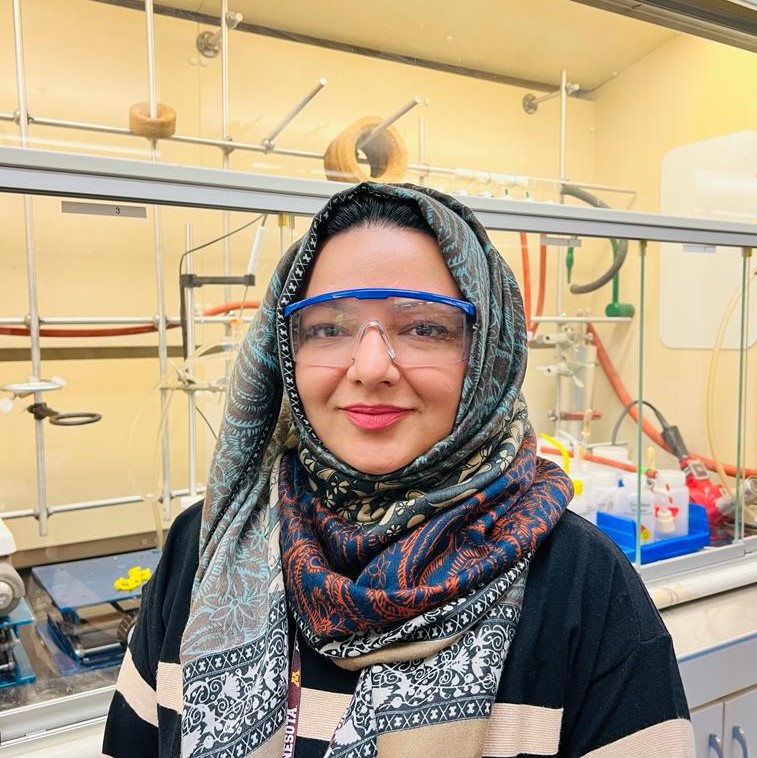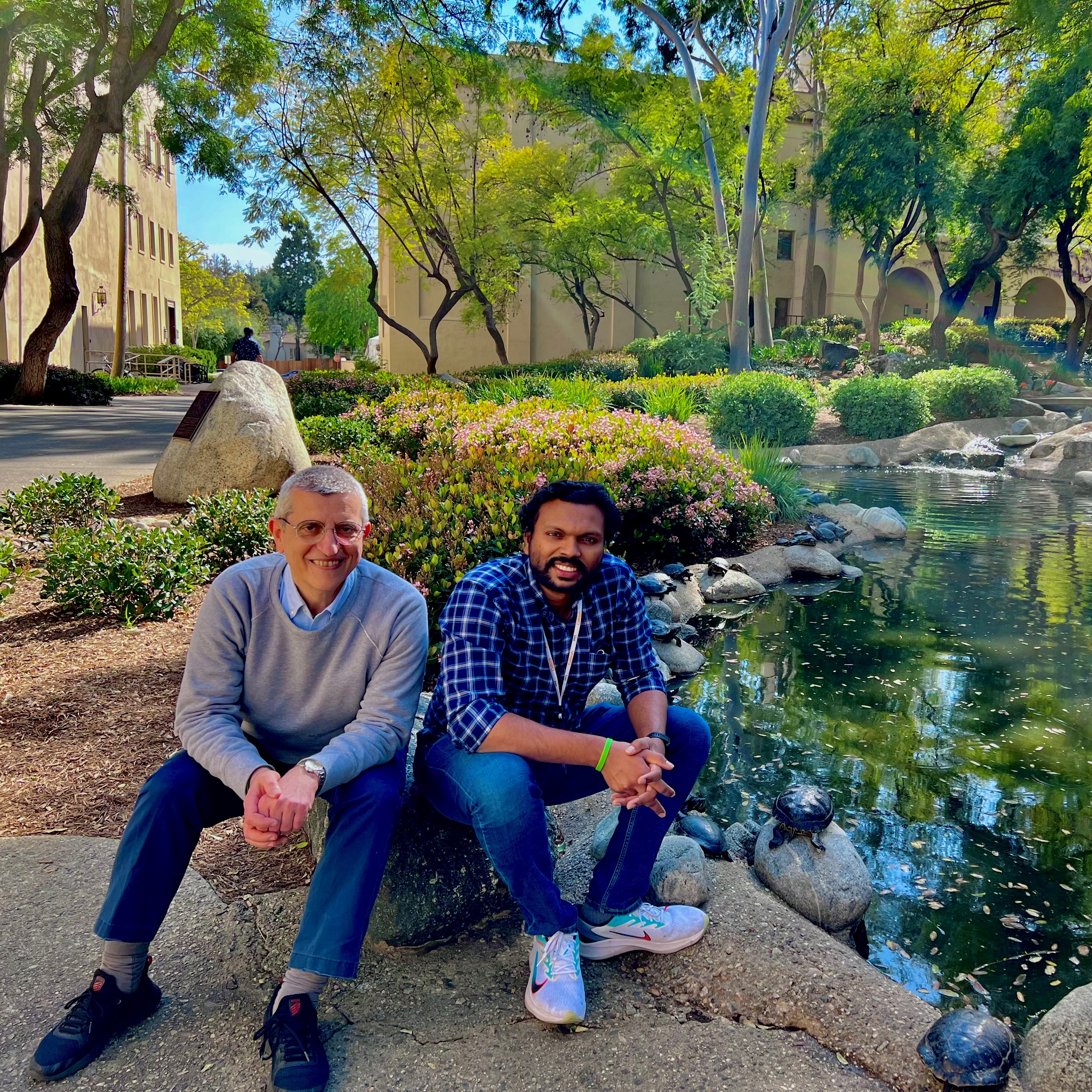Each year roughly 900 faculty and professionals from around the world receive Fulbright Scholar grants for advanced research and university lecturing in the United States. Individual grants are available to scholars from over 100 countries. Individuals who meet the eligibility requirements apply for grants through the Fulbright Commission/Foundation or public affairs section of the U.S. embassy in their home countries. After a thorough selection process in the home country, final approval for awards is issued by the presidentially appointed Fulbright Foreign Scholarship Board (FSB) in the United States. Exchanges range in length from three to twelve months.
For information on how to apply, including deadlines, please contact your country's Fulbright Commission or the public affairs section of the U.S. embassy.
Opportunities for Current Visiting Scholars

Fulbright Visiting Scholars currently on exchange in the United States are strongly encouraged to pursue the following opportunities to engage in stimulating topics, meet other Fulbrighters, broaden their intellectual networks, and experience the broad range of Higher Education in the United States.
Please see:
Resources for Fulbright Visiting Scholar Participants and Commissions & Posts

These resources are restricted to Fulbright Visiting Scholar participants and Commissions and Posts. It contains information relevant to the administration of the Fulbright Scholar program, including program policies, required forms, and other important resources. For login assistance please contact your IIE program contact/advisor.
Most Fulbright Visiting Scholars come to the United States to carry out a research and/or teaching project specific to their field of expertise. They work with a faculty associate at a U.S. Host Institution for the duration of their exchange, and they engage in conventional academic activities.
In addition to the aforementioned core program, the Fulbright Visiting scholar program also includes the following specialized exchange programs driven by U.S. Institutional needs and critical research fields.
- Through the Scholar-In-Residence (S-I-R) Program, American institutions benefit from hosting a foreign scholar for a semester or full academic year.
- The visiting International Education Administrators (IEA) seminars programs help international education professionals and senior higher education officials from other countries to create empowering connections with higher education systems in the United States.

- The Fulbright U.S.–ASEAN Visiting Scholar Initiative deepens people to-people engagement and strengthens educational ties around issues important to the ASEAN region.
- The Fulbright Arctic Initiative brings together a network of scholars, professionals and applied researchers to address key research and policy questions related to the Arctic region.
- The Fulbright-National Archives Heritage Science Fellowship provides an opportunity for Fulbright visiting scholars to connect with National Archives scientists and experts while conducting research at the National Archives’ state-of-the-art Heritage Science Research and Testing Lab in College Park, Maryland.
- The Fulbright / Kennedy Center Fellowship for Performing Arts And Science provides an opportunity for a Fulbright visiting scholar to connect with artists, staff, educators, and audiences at the John F. Kennedy Center for the Performing Arts in Washington, D.C.
- Fulbright Amazonia supports a network of scholars, professionals, and applied researchers to conduct interdisciplinary research on the most important issues facing the countries of the Amazon river basin.
To participate in the Fulbright Visiting Scholar Program, the applicant must:
- be a citizen of a country participating in the Visiting Scholar Program. U.S. citizens and permanent residents are NOT eligible for the Fulbright Visiting Scholar Program.
- possess a doctoral degree or equivalent professional training or experience at the time of application.
- Have sufficient proficiency in the English language to engage in U.S. academia and to carry out the proposed project.
Other terms of eligibility may apply at the country level. To inquire, make sure to reach out to the Fulbright Office in your home country. You can find out how to contact them at exchanges.state.gov/non-us/program/fulbright-visiting-scholar-program.
Resources for Host Institutions
Thank you for your institutional interest in partnering with the Fulbright Program. While Fulbright awards are given to individual scholars, U.S. institutions also can benefit from and give to the program in various ways. The Fulbright Visiting Scholar Program partners with hundreds of U.S. institutions of higher education to host nearly 1,000 exchange visitors each year. Institutions are typically approached by prospective foreign applicants before they submit their Fulbright application for review, and if applicants become nominees, their relationship with their host is further developed, often with the assistance of IIE and the Fulbright Program, culminating in a successful exchange program.
The content below is intended to assist prospective and confirmed host institutions who are considering or planning to host a Fulbright Visiting Scholar through the core research and/or teaching program.
- What is the Fulbright Program?
The flagship international educational exchange program sponsored by the U.S. government, widely known as the Fulbright Program, is designed to increase mutual understanding between the people of the United States and people of other countries. The program’s primary support is provided by the United States Congress through the United States Department of State’s Bureau of Educational and Cultural Affairs (ECA). IIE administers the Fulbright Visiting Scholars Program on behalf of the Department of State. U.S. institutions and their faculty have made significant contributions to the success of the program since its inception in 1947.
- What is included in a Fulbright Visiting Scholar award?
All Fulbright Visiting Scholars (900-1000 annually) receive round-trip international travel and health benefits for accidents and sickness provided by the U.S. Department of State. Most scholars also receive a monthly stipend and additional allowances as benefits of their grants. Some scholars may be partially funded by their home institutions through sabbatical pay. Fulbright Scholars enter the United States under the sponsorship of the U.S. Department of State's J-1 Exchange Visitor Program and U.S. Universities do not need to provide visa sponsorship.
- What are the benefits of hosting a Fulbright Visiting Scholar?
Hosts typically report benefits in the areas of student engagement, collegial collaboration, and institutional capacity building. Many Fulbright Visiting Scholars advise students, teach, and seek to create collaborations between students in their home countries and students at their host institutions. According to our survey data, typically 80% of Faculty hosts report that they grew professionally by hosting a foreign scholar, often citing co-publications with their scholar. The benefits and returns of hosting a scholar are wide-ranging and a Fulbright grant is frequently reported as the root of long-term international collaborations, both individual and institutional.
- Would it cost my institution anything to host a Fulbright Visiting Scholar?
Apart from in-kind contributions detailed below, U.S. host institutions are not responsible for providing financial assistance to the scholar. Your institution should not provide the Form DS-2019 as it will be issued by the Fulbright Program. Your institution is not responsible for health insurance for scholars or their dependents, as coverage compliant with J visa regulations is provided to Fulbright scholars, and as individuals they must arrange for sufficient insurance for their dependents.
- How do I and my institution determine whether or not we can offer to host a Fulbright Visiting Scholar?
It is important to consider whether you/your department:
- would support consultation with department faculty, and are able to appoint/serve as a primary Faculty host (Faculty Associate);
- has research interests and facilities consistent with the project outlined in the scholar’s project proposal;
- could facilitate/provide access to computer facilities, library and research facilities, and an office or shared work space for the period of time being proposed; and
- could provide all of the above as in-kind contributions (i.e. ideally without fees). Funding for the Fulbright Program is provided through U.S. taxpayer contributions. The Fulbright program respectfully asks that host institutions make every effort to support Visiting Scholars and the Fulbright mission by waiving any standard affiliation fees they may have in place.
- I have been asked to provide an institutional "Letter of Invitation." What is it?
The Letter of Invitation from a Fulbrighter's proposed host institution is a critical document used at two different moments in the program cycle of a Fulbrighter. First, a prospective applicant may request a letter prior to applying for an award through their home country in order to strengthen their application. Second, and most importantly, a principal nominee may select a very specific letter of invitation that is reviewed by the Fulbright Program as a critical document in issuing a DS-2019 and providing J-1 Visa sponsorship for the Fulbrighter. Please review this checklist for the ideal components of a complete Letter of Invitation institutions should provide to Fulbright Visiting Scholars selected as principal candidates.
- IIE has asked my institution to complete an Institutional Reply Form (IRF). What is it for?
Since many months pass between when a scholar applies for a Fulbright and when they would actually undertake their exchange, the Institutional Reply Form is a tool IIE developed to confirm important details about a principal nominee's proposed project plans and host institution. The questionnaire is designed to help institutions and Fulbrighers understand more concretely what types of arrangements they should be thinking about making in advance of their Visiting Scholar's arrival. It also helps institutions communicate both resources and expectations to their Visitor. Because willing faculty hosts may not always be fully aware of their institution's policies vis-a-vis international visitors, IIE asks that the IRF questionnaire be reviewed and signed off on by both the faculty host as well as an administrative official well-versed in institutional policies. This ensures more entities on campus know that the Visiting Scholar is coming, and helps pave the way for a smooth arrival and start to the scholar's exchange program. Many participating countries ask IIE to complete the IRF exchange with host universities; but some countries rely only on the institutional letter of invitation (described above) to finalize these critical details. One the IRF is completed and returned to IIE, the dates and program arrangements are considered to be confirmed and the program moves ahead with issuing the DS-2019 form required for the Visiting Scholar to apply for their J-1 visa to enter the United States.
The IRF will be requested of faculty hosts securely via an electronic survey (a unique link will be shared directly with confirmed program hosts). However, these resources may be helpful to hosts and scholars in planning in advance.
IRF Questions Overview for U.S. Host Institutions
Pre-Program Considerations for Fulbright Visiting Scholars and their U.S. Host Institutions
- Do I have to provide housing for my Fulbright Visiting Scholar?
No. The scholar is responsible for locating their own housing, but may seek your assistance and advice in identifying suitable accommodations. Scholars do face enormous challenges in securing affordable housing within reasonable commuting distance from campus. If you are able to assist in this regard with advice or strategies, particularly if your scholar is eligible to pursue on-campus accommodations through your institution, this is wonderful and will undoubtedly be welcomed by your Visiting Scholar, but it is not required. Note that any and all housing arrangements need to be done in close consultation with the Visiting Scholar to avoid misunderstandings.
- What if I can no longer host a Visiting Scholar that I previously communicated with?
We understand, plans change, for personal, professional, and myriad other reasons. When this happens, make sure to communicate directly with your scholar about the issues, and with IIE if we are already in touch with you. IIE is able to support scholars in seeking alternate arrangements, and/or your scholar may have secured backup plans during the application process. Early and frequent communication is the key not only to a successful program, but also to solving problems when they arise.
- Additional Resources
Fulbright Visiting Scholar Program Letter of Invitation Checklist

